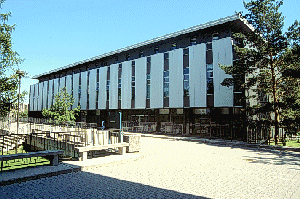PDF
Writing out of orthodoxy: Lily Dougall, Anglican modernist, 1858-1923 Item Info
- Title:
- Writing out of orthodoxy: Lily Dougall, Anglican modernist, 1858-1923
- Creator:
- Dean, Joanna
- Date Created:
- 1999
- Degree Awarded:
- Doctor of Philosophy
- Subjects:
- Dougall, Lily, 1858-1923 Criticism And Interpretation Liberalism (Religion) Feminist Theology
- Geographical Focus:
- Canada Montreal US New York Oxford England
- Supporting Materials:
- n/a
- Description:
- Lily Dougall (1858-1923) was a Canadian novelist and religious essayist. This biography charts her intellectual development from her evangelical youth in Montreal and New York to her prominence as a religious speaker and writer with the Anglican Modernist movement in Oxford, England. It is an investigation into the gendered cultural context within which modern experiential faith has developed. Lily Dougall was known in Britain for her thought-provoking novels, such as Beggars All (1891), when she published, anonymously, the controversial lyrical religious essay, Pro Christo et Ecclesia (1900). Between 1900 and 1923 she wrote and edited a series of widely read works of modern theology, and became a popular modernist speaker, an advocate of spiritual healing through the Guild of Heaith, and a mentor to the Student Christian Movement and the Anglican Fellowship. With Canon B.H. Streeter, she created the Cumnor Group, an influential discussion group dedicated to liberal theology. As a religious modernist, Lily Dougall advocated free intellectual inquiry and rejected the traditional authorities of creed, doctrine and the Bible. She did not find miracles, even the miracles of the virein birth and phvsical resurrection of Christ, central to her faith. Instead her theology was experiential, based on the personal experience of God. The thesis identifies the origins of this liberal and experiential faith in the work of Friedrich Schleiermacher, Thomas Carlyle, F.D. Maurice, and American holiness theologian Thomas Upham, and describes the evolution of her religious thought through evangelicalism, the Anglican Broad Church, Christian socialism, personal idealism, modernism and Christian fellowship. The thesis argues for a more contextual and historically nuanced understanding of religious experience. It analyses the gendered nature of liberal spirituality, which shaped, and sometimes silenced, women’s theological expression, and discusses Dougall’s difficulties entering and working within the masculine world of theology. Finally, it examines the links between Edwardian experiential faith and the development of feminist theology, the modern study of mysticism, and the early science of psychology.
Source
- Preferred Citation:
- Dean, Joanna. Writing out of orthodoxy: Lily Dougall, Anglican modernist, 1858-1923. 1999. Carleton University, Doctor of Philosophy.
- Reference Link:
- https://cuhistory.github.io/grads/items/hist_198.html
Rights
- Rights:
- Copyright the author, all rights reserved, unless otherwise indicated.

